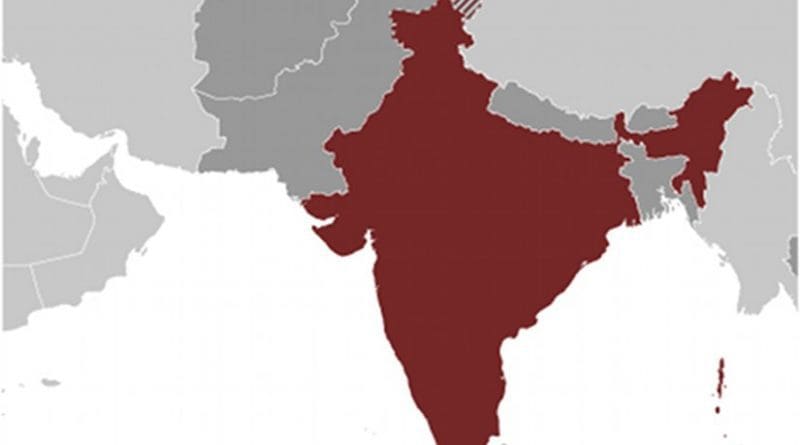‘Undemocratization’ Of India: Has World’s Largest Democracy Transformed Its Character? – OpEd
Indian democracy in the present scenario is challenging its own foundation and marching towards a self-contradictory nation which is contradicting its foundational value. The birth of the one of the stable democracy in the world is marked by the idea of the non-violence propounded by its father of the nation Mahatma Gandhi.
The ghastly night of 4th January which marked the attack on its premier educational institution Jawahar lal Nehru University, predecessed by a series of attack on its premier universities including Aligarh Muslim University and Jamia millia Islamia has proved that the state in India is no longer fond of Gandhian idea of India. The attack on this premier varsity is not merely an attack on the student’s right to peaceful protest, culture of free space, voice and educational institution but also a direct attack on Gandhi.
The foundation of this minority institution traces its root from the non- cooperation movement started by Mahatma Gandhi in 1920. The poor sense of history among the masses is one of the reasons that the people are not conducive to nation building psychologically and gets trapped into the propaganda of the current regime. The essence of Dharma is inherent to the Indian customs and traditions which lays emphasis on the concept of political accountability which is based on the premise that there should be a limit to the absolute power. The centralisation of power in a parliamentary democracy erodes its representative character, as the parliament is the representation of all its member regardless of its affiliation to the political party.
SHAKING THE IDEA OF INDIA
The idea of India envisioned by its founding father was inclusive, diversified and significantly based on the non-violent and Ahimsa, which was the cardinal principle of Buddhism and Jainism, later followed by Mahatma Gandhi. The recent eruption of prolonged violence, sponsored by the institutional means, stifling the dissent in the name of anti- national element and using the disproportionate force has uprooted the seeds of non- violence sown, since the traditions.
As Stanley wolpert described in his book “An introduction to India” that it is an important Indian premise, underlying many attitudes towards daily life and relationships. The selectiveness in the condemnation of violence in the largest state, exclusion of minorities through legislative means, entrusting blanket power to state agencies to declare terrorist are forming a chain of institutional breakdown of democratic ethos and encroaching Citizen’s right. The current establishment in India must not forget that the Indian democracy has a foundation of moral vision, political skill, legal acumen, these all were finally culminated into the Constitution of India. India has been a laboratory of social conflict since its inception but what makes the current conflict is different as it is a challenge to constitutional resilience.
The commencement of monologue, as since the Narendra Modi became the prime minister, imposition of a uniform political beliefs, suffusing the fear of neighboring country, and using the political power as a tool for reshaping the inscribed values has to be seen as a clouding the fate of a nation .
CONCLUSION AND THE ROAD AHEAD
The transition of India from civil disobedience to follow Government’s obedience dismays the constitutionalist across the globe, as the India is the harbinger of peace and harmony in every crisis that world’s faces. During the recent time the conjunction of event commencing from the individual mob-lynching to mass lynching of dissenter has ascertains the view of Granville Austin’s that the Constitution do not work they are inert, dependent upon being ’worked’ by citizens and elected and appointed leaders.
The reluctance on the part of Government to initiate a process of dialogue, and ensure peace reveals its mala fide intent and makes it’s more evident that the populist Indian state is meant for only ‘Political gains’. The character of a nation is defined by its people, democracy celebrates its existence due to dissent and the peaceful nationwide protest in India shows that the strict academic discourse on democracy has broken its ceiling and erupts on the road.
The democracy of India has passed the tumultuous phase of emergency and survived through the test of time by electoral power. When one of the premier technical institute IIT- Kanpur is going to decide that the poem of Faiz- Ahmad Faiz is anti-Hindu or not? We all must see whether the Narendra- Modi led Government able to succeed in transforming the nation’s fundamental character or will ousted like the iron lady (Indira Gandhi) of India when she tried to become autocratic.
*Rajesh is currently studying at National law University Jodhpur and regularly contributes on the issue of Constitutional law, democracy and Governance on different platform

